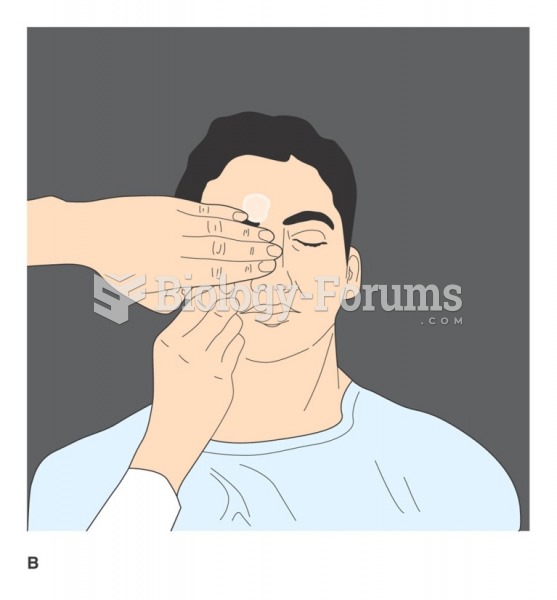|
|
|
People with high total cholesterol have about two times the risk for heart disease as people with ideal levels.
In the United States, there is a birth every 8 seconds, according to the U.S. Census Bureau's Population Clock.
Cyanide works by making the human body unable to use oxygen.
Asthma attacks and symptoms usually get started by specific triggers (such as viruses, allergies, gases, and air particles). You should talk to your doctor about these triggers and find ways to avoid or get rid of them.
If you use artificial sweeteners, such as cyclamates, your eyes may be more sensitive to light. Other factors that will make your eyes more sensitive to light include use of antibiotics, oral contraceptives, hypertension medications, diuretics, and antidiabetic medications.







